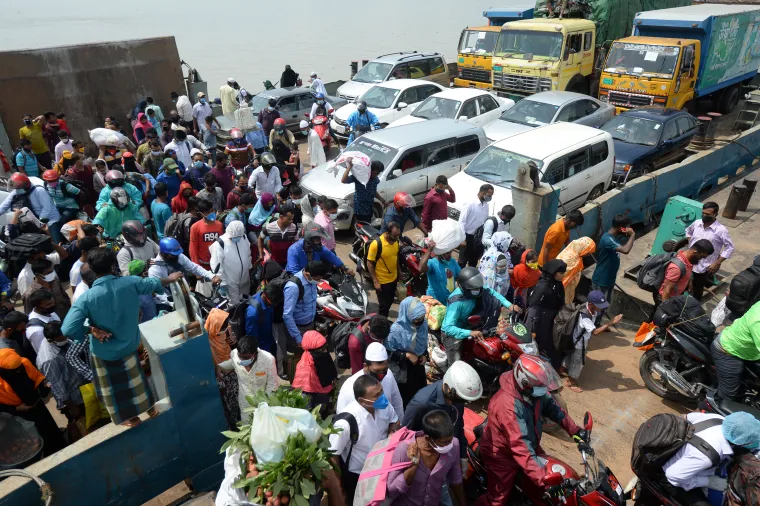New York, June 22, 2020 – The Committee to Protect Journalists today called on authorities in Bangladesh to immediately and unconditionally release political cartoonist Kabir Kishore and writer and commentator Mushtaq Ahmed and to stop using the Digital Security Act to silence critical reporting on the coronavirus pandemic.
On May 6, Kishore, Ahmed, and three other journalists were among 11 people investigated under the Digital Security Act for “spreading rumors and carrying out anti-government activities,” according to news reports. Ahmed, a writer and political commentator who recently published an article criticizing the shortage of personal protective equipment for doctors, has been detained since May 4, and Kishore has been detained since May 5, according to those reports. Authorities also launched investigations into Tasneem Khalil, editor of Sweden-based news website Netra News, freelance reporter Shahed Alam, and blogger Asif Mohiuddin, but they do not reside in Bangladesh, according to the news reports.
Didarul Islam Bhuiyan, an activist who also frequently posts political commentary on social media, has also been detained since May 5, according to those reports.
In May, Bangladeshi authorities arrested journalist Shafiqul Islam Kajol under the Digital Security Act, CPJ documented at the time. He remains in detention, with a court hearing scheduled for tomorrow, according to the Dhaka Tribune. CPJ has called on the Bangladeshi government to repeal provisions of the Digital Security Act that are detrimental to press freedom.
“It is indefensible that the Bangladeshi government has jailed journalists Kabir Kishore and Mushtaq Ahmed in the middle of a pandemic, when critical reporting is more important than ever,” said Aliya Iftikhar, CPJ’s senior Asia researcher. “The Digital Security Act has been weaponized to curb the press in exactly the way many feared. Bangladeshi authorities must repeal the law.”
On June 16, a virtual court in Dhaka denied bail for Kishore and Ahmed, according to the Dhaka Tribune.
Prime Minister Sheikh Hasina’s deputy press secretary did not respond to a request for comment via email.
Police allege that six of the individuals named, including Ahmed and Kishore, run a Facebook page named “I am Bangladeshi” that they say tarnishes the image of the country and creates confusion among the public, according to Netra News. Khalil, the editor of Netra News, which has been blocked in Bangladesh since December 2019, was also accused of writing about members of the army and law enforcement agencies, according to the Daily Star. Khalil told CPJ that he learned he had been named in the case when he was investigating Kishore’s detention.
Authorities seized Kishore and Ahmed’s phones and said they found evidence that Kishore was “spreading rumors to create confusions by drawing cartoons of different ruling-party leaders,” according to the Daily Star. Kishore had been working on a “Life in the Time of Corona” cartoon series that included caricatures of ruling party leaders and allegations of health sector corruption, according to Agence France-Presse. Ahmed had shared some of his cartoons on his personal Facebook page, according to the Daily Star. Authorities also seized a second phone of Kishore, an external hard drive, a desktop computer, and 200 CDs, according to the Daily Star.
[Editors’ Note: The headline and the text has been updated to reflect the correct status of the investigation against the journalists.]
